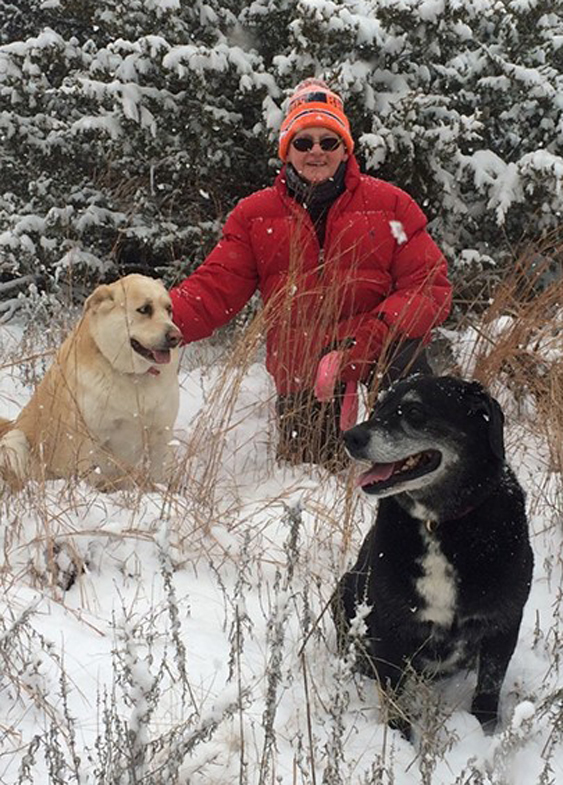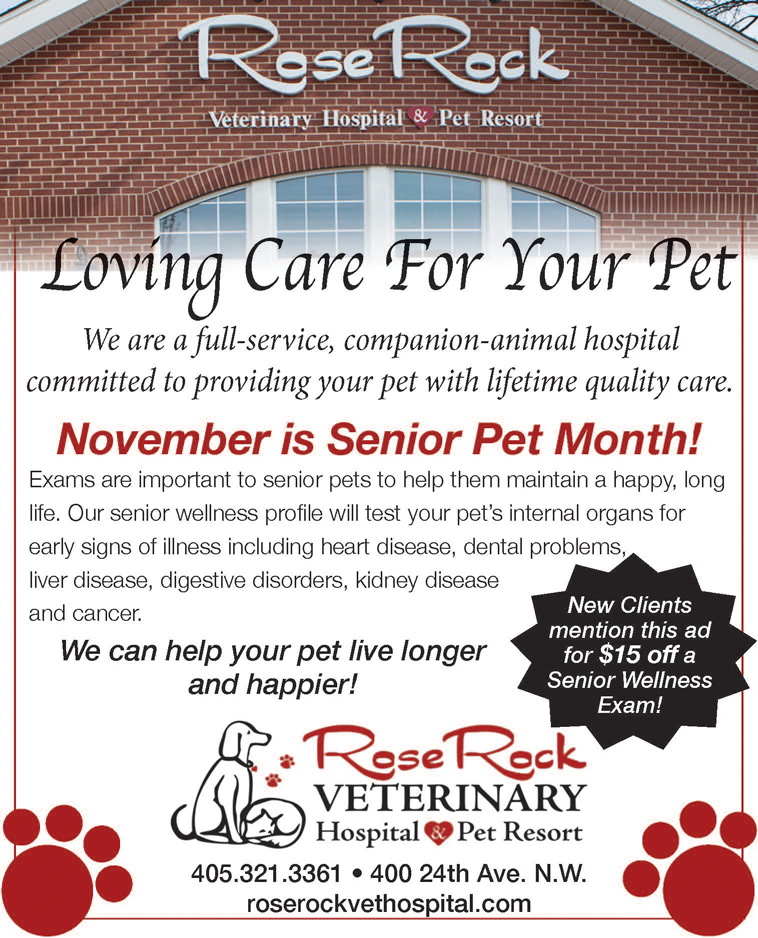
By Marise Boehs
November is a month dedicated to helping older pets find loving forever homes. If you’ve been thinking about adding a four-legged-friend to your family, consider opening your home and your heart to an older dog or cat in need. While small kittens and puppies may be cute, older pets are just as loving and loyal!
Since senior pets are fully grown, you will have access to important information like personality type and grooming requirements, making it easier to choose the perfect pet for your family.
Senior pets are typically calmer and less energetic than puppies and kittens, so it’s easier to teach them new tricks. Many senior pets are already pros at performing basic commands.
Many people find themselves unprepared for the energy and needs of a young pet. But a sweet senior moves at a much more manageable pace. They’re less demanding and usually fit in well in many kinds of households, including apartments.
Some are unprepared for the hard work it can be to housetrain a new puppy or kitten. You can spend a lot of time training a new puppy to do their business outdoors or teach a kitten to remember where the litter box is. But older pets are usually already housetrained, saving you that stress.
Understanding the personality of an animal is key to finding the perfect match for your family and for that homeless pet. While young puppies and kittens are still developing their personalities, you’ll know right away whether a senior dog is a snuggle-bug or a senior cat is more of an independent spirit.
Many people looking to adopt, complete overlooking the perfectly adoptable older dogs and cats in kennels and cage. In many cases, the absolute most difficult group of homeless pets to place are older dogs and cats. It is a sad fact that senior pets are often the last to be adopted from shelters, putting them at an increased risk for euthanasia.
When you adopt a senior pet, you’re not only welcoming a lifetime of love into your home, you’re also saving a precious life. You’ll get lots of love from an amazing companion.
That said, bringing an older pet home from the shelter or rescue can have its own unique challenges. Sometimes, because the pet is at an advanced age, there can be some extra health issues to consider. They’ll need regular vet care, preventative care, and dental care to stay in good health. But that, by no means, should deter someone from adopting a senior pet.
Depending on breed, lifestyle, and existing health issues, a senior dog or cat can still have plenty of healthy and happy years to give as your loving companion.
Healthcare for Senior Pets
Dogs and cats are considered seniors by the age of 7 years old. They age faster than humans and how much faster is determined by their size and breed.
Bi-annual exams are very important to senior pets to help them maintain a happy, long life.
Our pets are increasingly vulnerable to many illnesses as they reach their later years of life. Their health problems related to advancing years are like our own, including heart disease, dental problems, liver disease, digestive disorder, kidney disease, and cancer.
Early detection and treatment of diseases can enable veterinarians to extend your pet’s life and improve the quality of it as well.
Senior exam & lab work benefits include:
Physical Exam Many diseases such as tumors, dental disease, and heart disease can be detected and treated early with a physical exam.
Blood Chemistry (CBC/Chem.) To identify various underlying problems with the internal organs early on before they become serious. Many of these problems may not be detected on a physical exam.
Urinalysis Assesses the health and function of the kidneys and bladder. Many diseases will cause urine to be abnormal before any other test or exam will show an abnormality. This is good for early detection of kidney disease.
Thyroid Screening (T4) Many breeds develop thyroid problems as they age. Screening allows early detection before they become ill.
Electrocardiogram (ECG) Helps to detect heart problems that may not show on physical exam so further diagnosis or treatment can be started.
Glaucoma Screening To check the pressure in the eyes. If the pressure is too high, it can be painful and cause blindness.
Blood Pressure Overweight and geriatric animals are prone to high blood pressure. As in people, it can be a silent killer. Older cats are at risk and sometimes the first symptom is blindness or kidney disease that could be prevented if started on medications early.
Radiographs: For detection of abnormalities such as enlarged heart, tumors, and organ enlargements.
Dentistry: Keeping the pet’s teeth clean prevents painful teeth, odor from the mouth, and bacteria from the mouth that could damage the kidneys, heart, or other organs.
Source: Rose Rock Veterinary Hospital and Pet Resort
Author’s Note
Some of the best times of my life where spent with my beloved senior girls. They have gone on to their reward now but not a day goes by that we don’t miss them and talk about the good times.
While the puppy is a joy, and thankfully through the chew-everything-in-sight-stage, she has a high bar to meet. We have to remind ourselves that she is who she is and not compare her to the seniors. “She’s only 3 years old,” is a constant refrain at our house.















